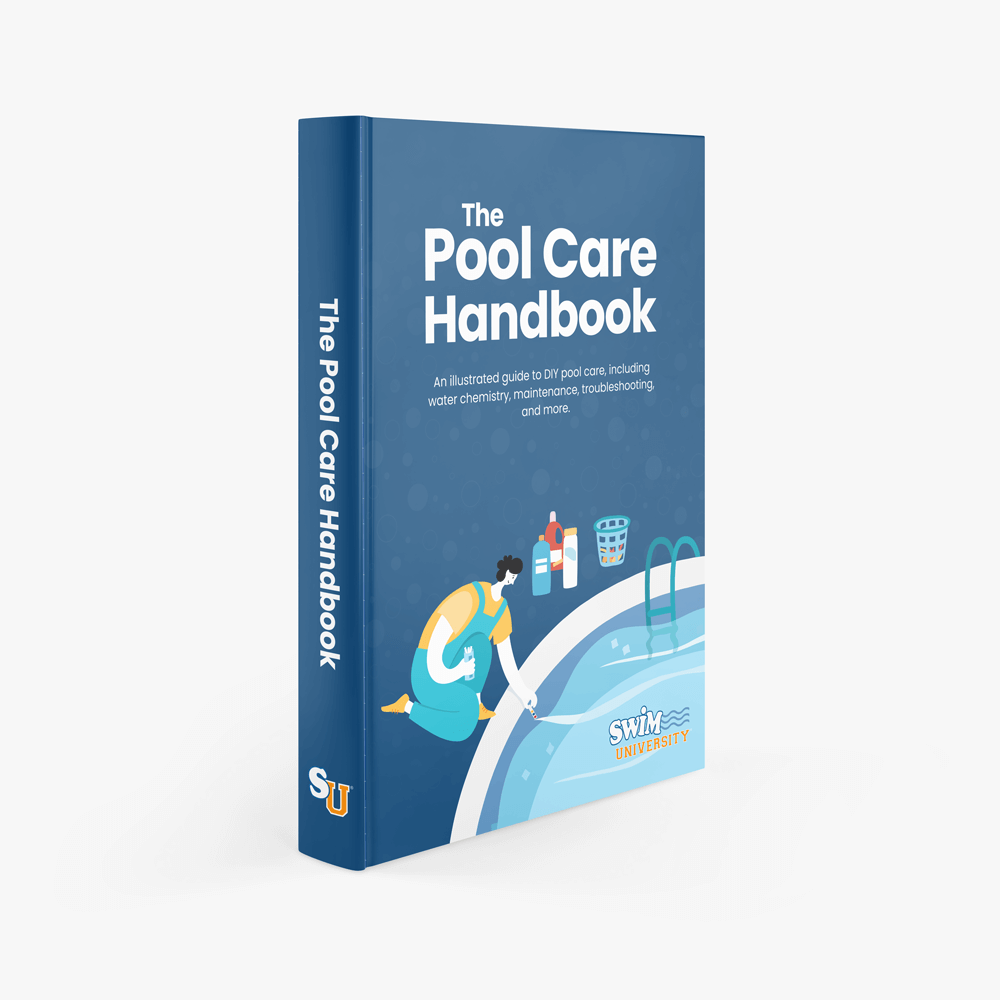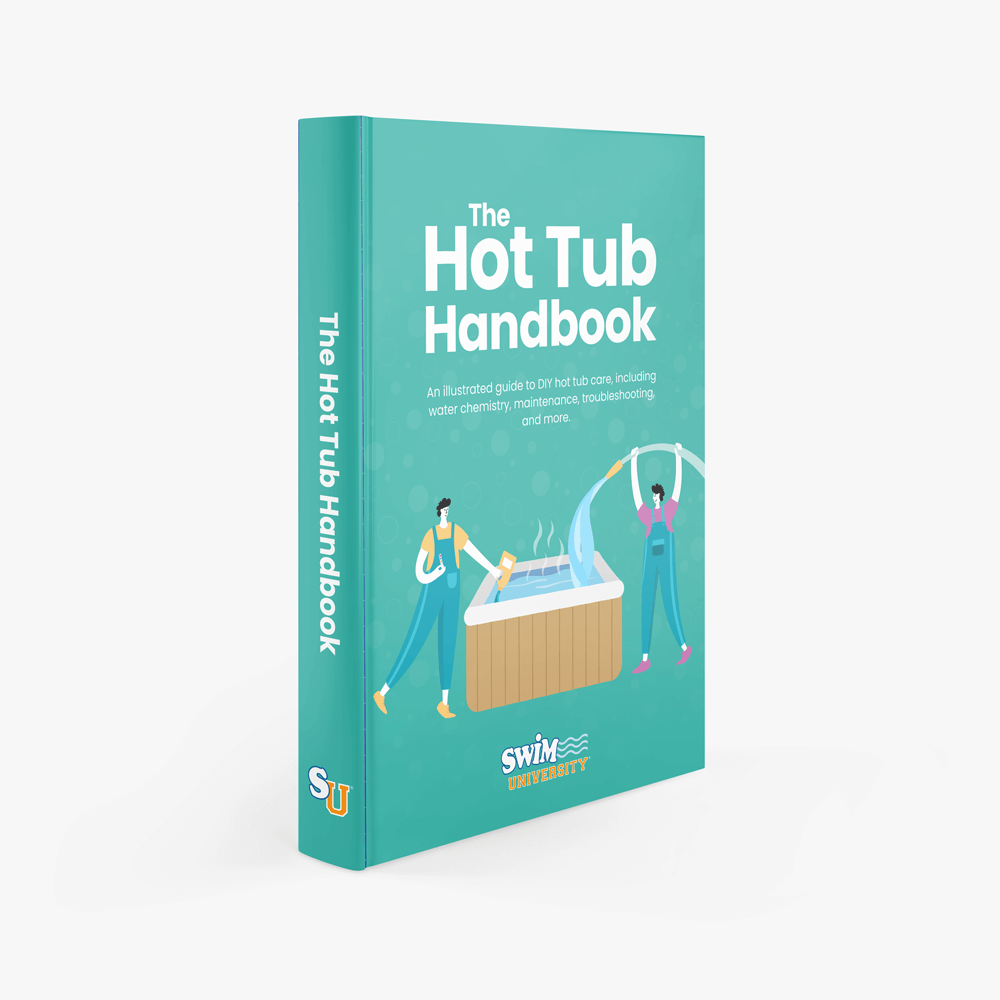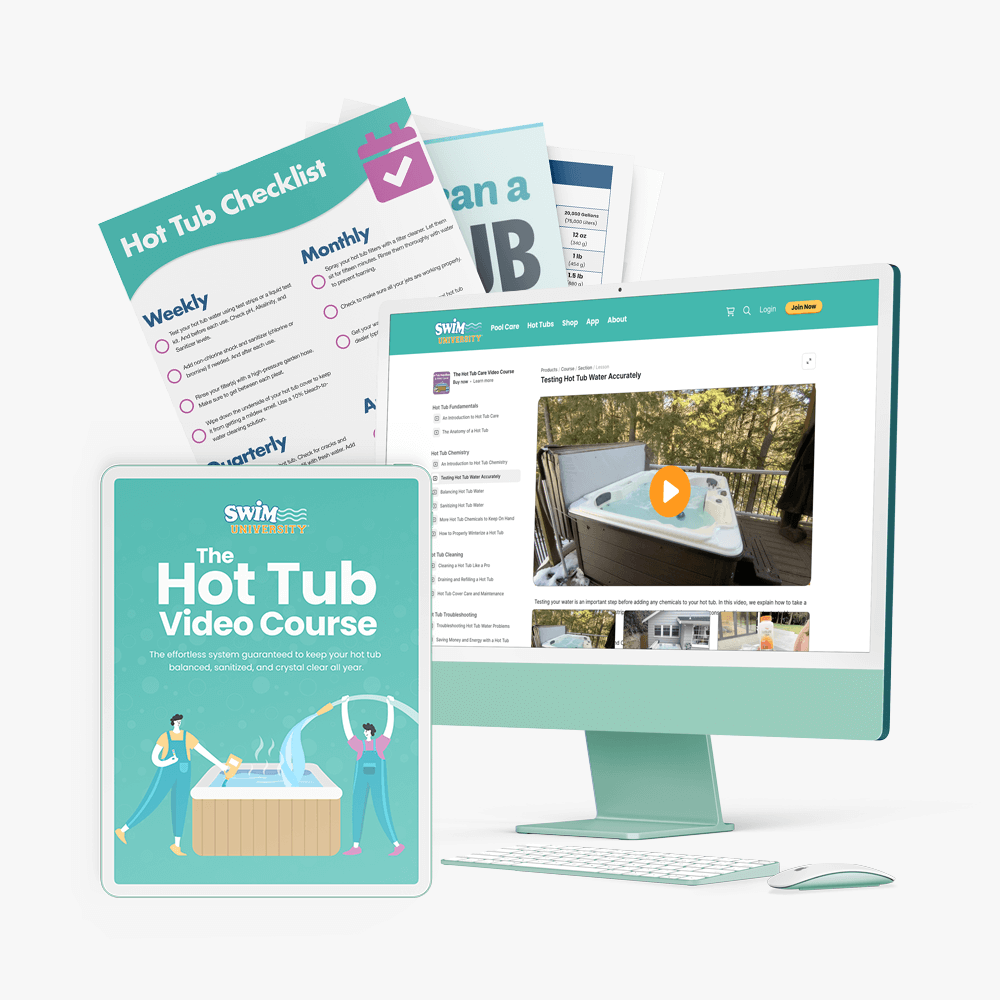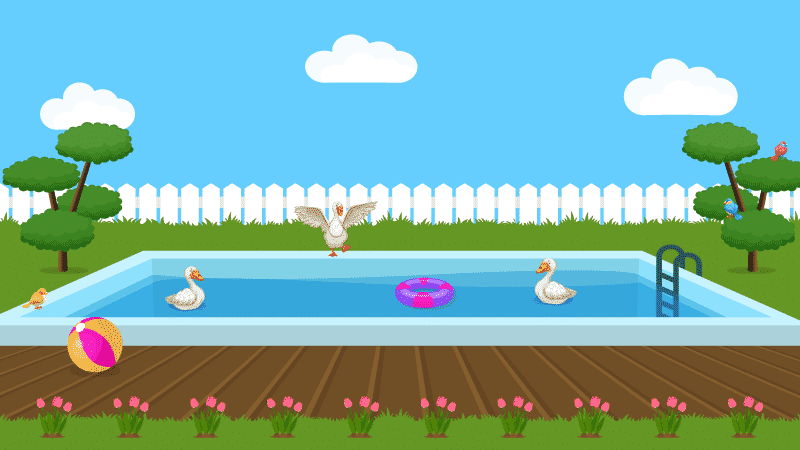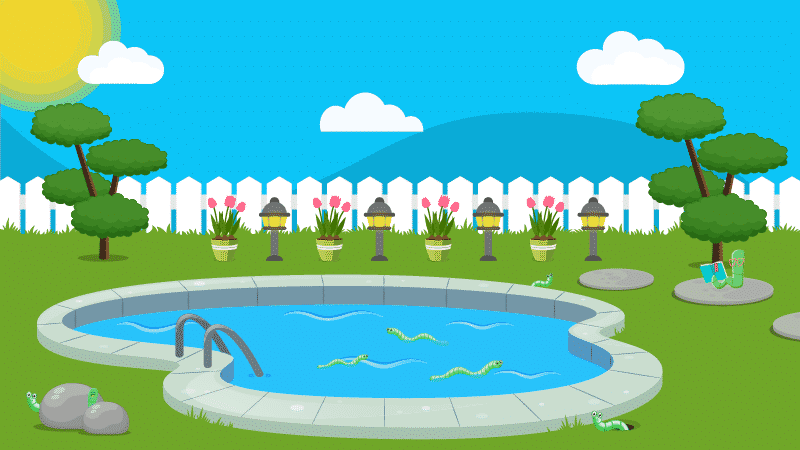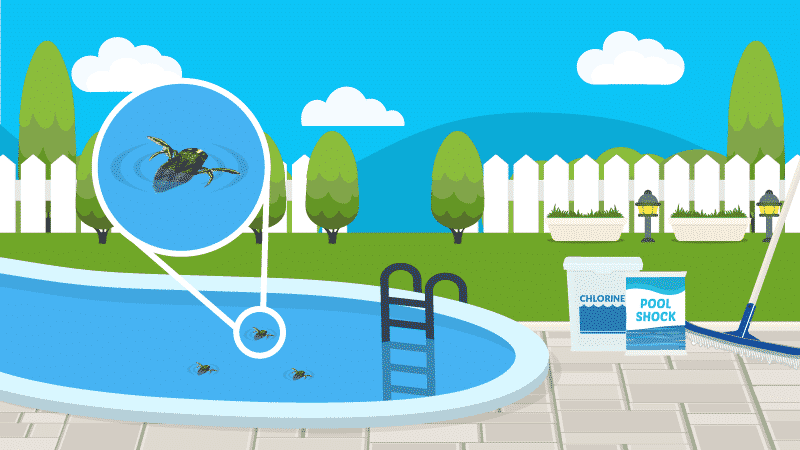How to Keep Bees and Wasps Away From a Pool
Nothing can ruin a good time in your pool faster than a sharp bee sting. Well, maybe someone using the pool to, uh, relieve themselves. That’ll definitely put a damper on things. But at least that’s not physically painful, though it may seem like it is.
Bees hang out around your pool for good reason—it’s a giant watering hole in their multiple compound eyes. And if you have bees buzzing around, chances are you’ve seen a wasp or three as well. While you may be tempted to destroy them, remember they’re actually very good for the environment—even the small environment of your back yard. You just need to show them a better place to be than around your pool.
Stop wasting time and money with confusing water chemistry and maintenance. Our effortless system guarantees to keep your pool balanced, sanitized, and crystal clear all year. Works for all pools including saltwater.
How to Keep Bees Away from Your Pool
Given how important bees are to the environment, their destruction should always be the very last resort after you’ve tried everything else at least twice. Yes, seriously.
Bees are dying in record numbers all over the world. Killing even just a handful—or worse, an entire nest—in your back yard will contribute to the overall loss of bees. And that will contribute to unfathomable damage to worldwide food production.
You have several options available that don’t entail killing bees. In fact, you can help and protect them instead because the pool itself is a danger to bees. They may land in it to drink water, but then become unable to fly out of the water, and end up drowning. So keeping bees away from the pool is for your safety and theirs.
Provide an Alternative Water Source
All living beings need water. Bees are buzzing around your pool looking for a place to drink. If you provide them with an alternative water source, they’ll find your pool a little less attractive.
We’re not talking about a whole pond in your back yard. A shallow birdbath or dish will do the trick. If you decide to use a regular birdbath, or something with a little more depth to it, place a few river stones or a small piece of wood near the edge of the water. This will give the bees a way to climb out should they fall into the water. It also gives them a place to land and drink from.
Keep the bees’ water source filled all summer, and remember the water will probably evaporate more quickly than the bees can drink it, especially if you live in a hot climate.
Note: If you set up a water source for bees before you open your pool for the season, the bees will already have an established water source and be less likely to buzz the pool.
Try dryer sheets
Hold on a minute. Dryer sheets? Really?
We’ll be honest here—we’re not entirely sure this works. Some sources say it’s an old wives tale. Others say dryer sheets do repel some insects. Some people swear by it. Others say it’s a waste of a good dryer sheet.
We say, give it a shot. Why not? It’s an inexpensive experiment, and if it doesn’t work, you’re only out a few pennies.
Arrange a few dryer sheets around your pool in decorative baskets, then watch what happens. Are the bees staying away from the pool? Then maybe it really does work! Just be sure to change the sheets out every so often as they’ll lose their scent, and probably their effectiveness, over time.
Are the bees still making themselves at home around your pool? Are they maybe even landing on the dryer sheets? Is that buzzing, or are they laughing at your silly attempt to keep them away? We’ll never know.
In any case, if you don’t see a reduction in the number of bees around your pool, then go ahead and chalk this one up to urban legend, and get back to creating that alternative water source.
Call a Local Beekeeper
If you’re only seeing an occasional bee flying around the pool, it’s not a big problem. But does your pool look like every bee in the neighborhood turned out for a party? You may have a nest on your property.
Find a beekeeper in your community. They may be able to remove the nest for you, without damaging it or killing the bees. They can then relocate the bees to a better, more accommodating home. Everyone wins!
If you can’t find a beekeeper, an exterminator may also be able to move the nest. Just be sure to specify that’s what you want done instead of having insecticide sprayed in the area where your kids and dog play.
How to Keep Wasps Away from Your Pool
Unfortunately, wasps are a bit tougher to get rid of than bees. They’re also scarier. They don’t have the reputation of pollen-gathering, honey-producing, fuzzy, cute little bees. Their reputation is, they’re basically jerks waiting to chase you and sting you just for fun.
But it’s important to note that they do offer some benefit.
First, even though they’re not as cute as bees, wasps are also important pollinators. In addition to flowers, a certain kind of wasp is essential to pollinating some varieties of figs. It’s called a fig wasp. Fitting, right?
Wasps also eat other pests such as flies, aphids, and centipedes. They’re one of nature’s built-in pest control solutions. Granted, they sometimes also eat beneficial insects such as spiders and yes, bees. But that’s all part of how nature works. When things go wrong is when we interfere with the natural order of things, and start spraying insecticide all over the yard, which will just kill everything, beneficial or not.
So before you start swatting or spraying wasps, consider a few alternatives to redirect them instead.
Deploy Decoy Wasps Nests
Wasps are very territorial and don’t like living near other wasps. They’re like the Jets and the Sharks that way. The good thing is, you can make this work to your advantage to keep wasps away from your pool.
You can buy fake wasp nests and hang them in other areas of the yard, preferably away from your house as well as the pool. Place them early in the season before the wasps start building their own nests. This way, you’ll keep them where you want them.
Try Using Raw Meat
Wasps apparently love raw meat. You may have noticed this if you’ve ever had a cookout, and had wasps continually trying to land on those burgers and steaks before you put them on the grill. Again, you can use this to your advantage.
Whenever you’re going to use your pool, try hanging a bit of cheap steak, ground beef, or chicken—raw, not cooked—in another part of your yard, preferably as far from your pool as possible. This will draw the wasps away from the pool as they head to the feast.
Important: Use a small amount of meat that the wasps will be able to go through quickly. Too much, and it may rot, leaving you with other icky problems, including flies and maggots.
Call in a Pro
If a large group of wasps has moved into your pool area, it may be more than a couple of fake nests and a little raw meat can solve. Or maybe someone in your home is allergic to stings, and you need the wasps (or bees) moved right away. Don’t hesitate to call in a professional.
This will usually be a pest control company, so make sure you tell them you want the wasps relocated, not sprayed with insecticide. The last thing you need is toxic chemicals blowing into your pool water or landing on the grass where you, your kids, and your dog may walk barefoot. Well, you and your kids. Of course your dog walks barefoot. Unless your dog is into fashion.
Get Buzzy!
The sooner you figure out how to keep bees away from the pool, and encourage wasps to move into the condos you set out, the sooner you can get back to enjoying your pool worry free.
Just remember that every being has its place in the ecosystem, even wasps. So the more you’re able to peacefully coexist with all the creatures in your back yard, the happier you’ll all be.
Happy Swimming!
4 Ways We Can Help With Your Pool
- Pool Care Cheat Sheets (Free): Easy-to-use downloadable guides to help you keep track of taking care of your pool this year.
- The Pool Care Handbook: An illustrated guide to DIY pool care, including water chemistry, maintenance, troubleshooting, and more.
- The Pool Care Video Course: You’ll get 30+ step-by-step videos and a downloadable guide with everything you need to know about pool maintenance.
- The Pool Care App: Enter your water test results. Get a custom treatment plan. Know exactly what chemicals to add to keep your pool clear.





